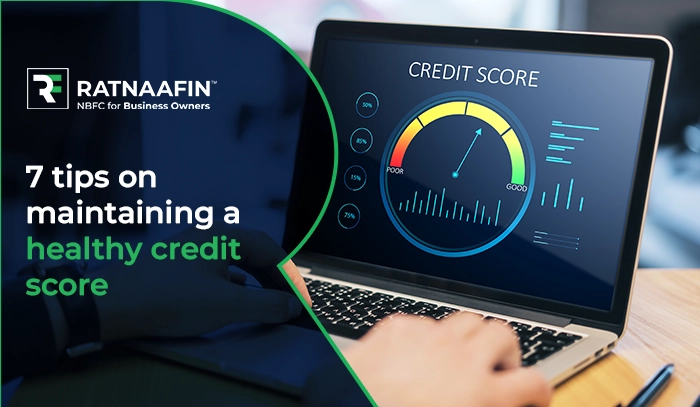
It is possible to live with bad credit, but it is not always simple or cost-effective. Having a good credit score can help you save money and make your financial life easier. Credit score is crucial in a lot of ways; hence, it is imperative to know how to:
Check your credit report regularly
Loans are especially difficult to obtain for people who have no credit history. Even if the loan is approved, the interest rate will be hefty. As a result, having one credit line, such as a credit card, is a reasonable choice for maintaining a credit history.
Here’s why checking credit report regularly is important:
Availing at least one loan product
If you want to maintain a good credit score, you should take out at least one loan and make timely payments. Borrowing multiple loans at the same time indicates that you are credit-hungry, which lowers your credit score. Hence, to keep your credit score intact, you should opt for at least one loan.
Avoiding late payments
Paying in time is a good habit to get into so that your credit score doesn’t suffer. Also, avoid using your credit cards as much as possible to keep your debt to a minimum.
Managing a credit mix
Unsecured loans are commonly thought to be the leading cause of a poor credit score. As a result, use a combination of secured and unsecured credit.
What’s a credit mix?
Types of credit accounts you have are referred to as your credit mix.
Simply explained, your credit mix refers to the types of credit accounts you have, such as mortgages, loans, and credit cards. It’s a factor that’s usually taken into account when determining your credit scores, though the weight it receives varies based on the credit scoring model (methods for computing credit scores) employed.
Lenders and creditors, in general, prefer to see that you have a diversified credit mix – that means you’ve been able to appropriately manage several sorts of credit accounts over time.
Credit Utilisation Ratio
Keep an eye on your credit usage ratio as one of the golden principles to follow. It’s the amount of credit you’ve utilized in relation to the credit limit you have available. Experts recommend that you use no more than 30% of your credit limit at any given time.
For example, if your credit card limit is ₹2 lakhs, you should spend about ₹60,000. Your credit score may suffer if you have utilized more than 50% of your credit limit. Lenders will be in wary if you have a lot of credit exposure because it means you’re more likely to default.
Do not close old accounts
Closing old accounts or credit cards is never a good idea because that accounts reflect a long history of debt payments. Before you close any accounts, think about how many you have, how much they cost you, what you use them for, and how they might affect your credit score.
Although canceling an account may save you money in annual fees or lower the chance of fraud on those accounts, closing the wrong accounts can affect your credit score.
Avoid new hard inquiries
You permit the issuer or lender permission to examine your credit report to assess your “creditworthiness” when you apply for a credit card or any other sort of loan (mortgage, vehicle loan etc.).
In other words, your potential lender wants to know if you’ll be able to repay the money you borrowed or not. The better your credit history, the less danger you present, and the more likely you to get approval for that new credit card or loan.
It’s crucial to understand that there are two kinds of credit inquiries. Your FICO (The Fair Isaac Corporation) score is unaffected by soft inquiries such as examining your own credit report. Hard queries, such as applying for a new credit card or a loan, will have an impact on your credit score.
Take advantage of one free credit report every year
The Reserve Bank of India (RBI) has mandated that all credit bureaus in the country give consumers with one free credit report each calendar year since 2017.
The four credit bureaus currently operational in the country are listed below:
This implies you have the option of obtaining four credit reports per year. You can also sign up to receive your credit reports, which include your credit score, from any of these bureaus.
Maintaining a strong credit score can unlock various financial opportunities, including better loan terms from the leading solar finance company in India, which can help you finance your solar projects with ease.
Recent Blogs
Debit Note and Credit Note